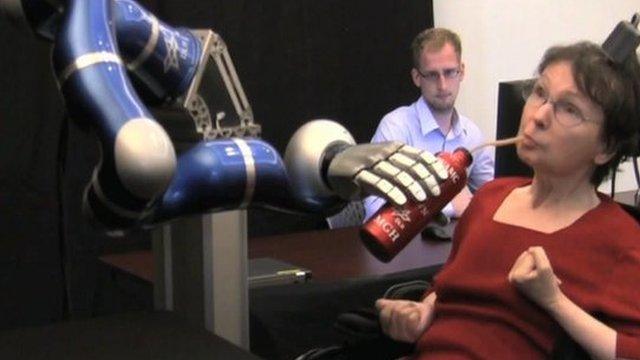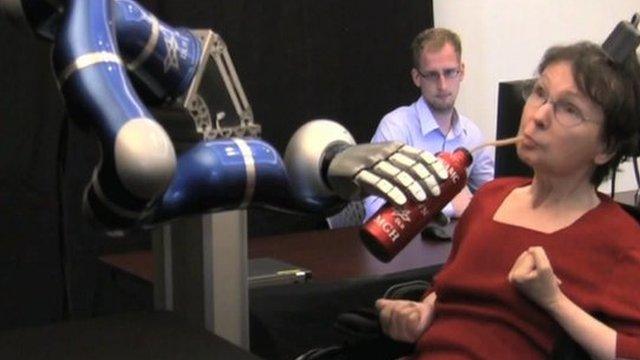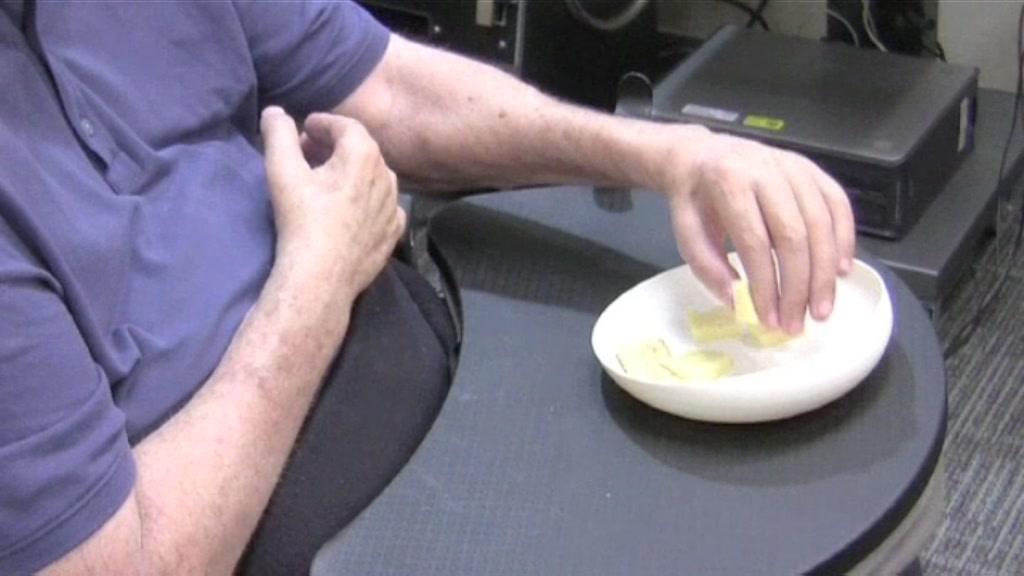Paralysed patients use thoughts to control robotic arm
- Published
- comments
Video from BrainGate team shows Cathy Hutchinson using a robot arm to take a sip of coffee. Courtesy Brown University / Massachusetts General Hospital
You know the feeling when you watch something and your jaw drops? That happened when I saw the footage of Cathy Hutchinson use a robotic arm to lift a flask of coffee to her mouth.
It was the first time since her stroke nearly 15 years previously that she had served herself a drink. She is one of two patients who took part in a trial of a neural interface system. A sensor containing a grid of 96 tiny electrodes is fixed to the brain and this picks up neural activity from the motor cortex and sends it to a computer which converts it to commands.
The footage is extraordinary because you can see the patient is controlling the robot arm by the power of thought. It would appear to open a world of possibilities - a bridge between humans and machines.
I've written a report about the research in Nature which you can read here.
'Road worth travelling'
I soon realised that I had covered this research before, in 2006., external That concerned another paralysed patient, Matt Nagle. He had the same tiny sensor implanted in his brain and could use it to control a cursor on a computer screen - turning lights on and off, and switching channels on TV.
This latest research takes the project to another level.
The researchers admit this technology is very much experimental and a long way from being of practical use. But it does offer real hope to patients with locked-in syndrome, whose active brains are trapped within a paralysed body.
The system could be used to develop an effective means by which they could communicate using a computer. It could also be used to help them control a wheelchair.
As for the brain controlling prosthetic limbs for amputees or allowing paralysed patients to reconnect their brain to their limbs and enable them to function - they are both a long long way away. But that doesn't make the research any less significant. It may be a small step on a long road, but it is surely a road worth travelling.
- Published16 May 2012

- Published16 May 2012

- Published15 May 2012
